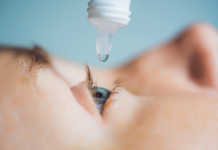
Sleep and EFA
By Suhani Shah, ND
In our modern-day life, we are constantly over-working our brains. We spend our resting time before the TV screen or our computer monitor. Our brains are contiunously analyzing, calculating, worrying, and searching. Then, at the end of the day, we wonder why we find it hard to sleep despite our exhaustion. Popping a sleeping pill or a calming sedative won’t do the trick. Studies show that these sleep-inducing medications interfere with your natural sleeping cycle. In other words, they may improve the quantity, but not the quality of your sleep.
Why do you need to sleep?
Besides relieving fatigue and restoring alertness, sleep has been proven to improve memory by consolidating, organizing and re-structuring the information you learn during your waking hours. It replenishes your brain performance and regenerates neurons. Sleep also lowers inflammation, boosts cells regeneration, and curbs oxidative damage. It improves your stamina, helps you better manage your daily stresses, calms down the fight and flight response, and increases your emotional stability. So much for such a “relaxing” activity!
Essential fatty acids
Recent research has been studying the role of essential fatty acids (EFAs) in improving sleep. Essential fatty acids are safe and well tolerated by most people. They are linked to many health benefits such as reducing systemic inflammation, improving heart performance, relieving asthma symptoms, and helping in autoimmune conditions like psoriasis, atopic dermatitis, Crohn’s, and colitis. They are linked to improving immune function, skin integrity, mood and hormonal balance.
EFAs have also been shown to mediate pain response by controlling the pro-inflammatory eicosanoids and cytokines. They have been proven effective in conditions like chronic pains, joints aches, carpal tunnel, and fibromyalgia. They lower the risk of Alzheimer’s, dementia, cognitive degenerative diseases, and can even help with depression. Low levels of EFAs are linked to increased risk and symptoms of ADHD in children and adults.
Can essential fatty acids help you sleep?
EFAs improve our sleep through direct and indirect mechanisms of action. EFAs are proven to stabilize and harmonize the complex mechanism by which our body initiates and maintains sleep (Yehuda et al., 1998).
Omega-3 levels, specifically docosahexaenoic acid (DHA), have been linked to better quality of sleep, reduced severity of sleep apnea, and improvement in melatonin level (Montgomery et al., 2014).
In a study conducted by University of Oxford in the UK, supplementing 600mg of DHA significantly improved sleeping habits of children.
Indirect connection:
- EFAs mediate stress response calming your brain chatter and regulating hyperactivity.
- EFAs mediate pain response, which makes it easier for chronic pain sufferers to retire at night.
- They manage the inflammatory reaction and cell oxidative damage, which again controls pain reaction.
- Deficiency in EFA is linked to hyperactivity in children.
- EFAs supplementation has been shown to lower anxiety, lower elevated cortisol levels, improves fatigue symptoms ,and balance mood (Yehuda et al., 2005).
- EFAs supplementation has been shown to be helpful in case of depression, another cause of insomnia.
Types and sources of EFAs
We cannot synthesize EFAs, we need to get them from food. Our body needs a constant supply of two types of fats: omega-3 and omega-6 fatty acids.
Our North American diet is highly loaded with omega-6 at the expense of omega-3, which shifts the balance towards more inflammatory reactions, hormonal imbalances, as well as mood and sleep disturbance. The balance between both types of fats is very critical for brain structure and function. Omega-3 deficiencies are widespread. We all seem to consume more omega-6 (mainly from common vegetable oils), than omega-3 (present in nuts, seeds and fatty fish and fish oil supplements).
So, do you have trouble sleeping at night? Try adding more cold-water fish to your diet and supplementing with some good quality EFAs.
Vegetarian sources of EFAs include seeds like flax and chia seeds; nuts especially walnuts; green leafy vegetables like spinach, kale, and grape leaves; seaweeds like spirulina; cruciferous vegetables like broccoli, cauliflower and Brussels sprouts; and other vegetables like winter squash and leeks.













